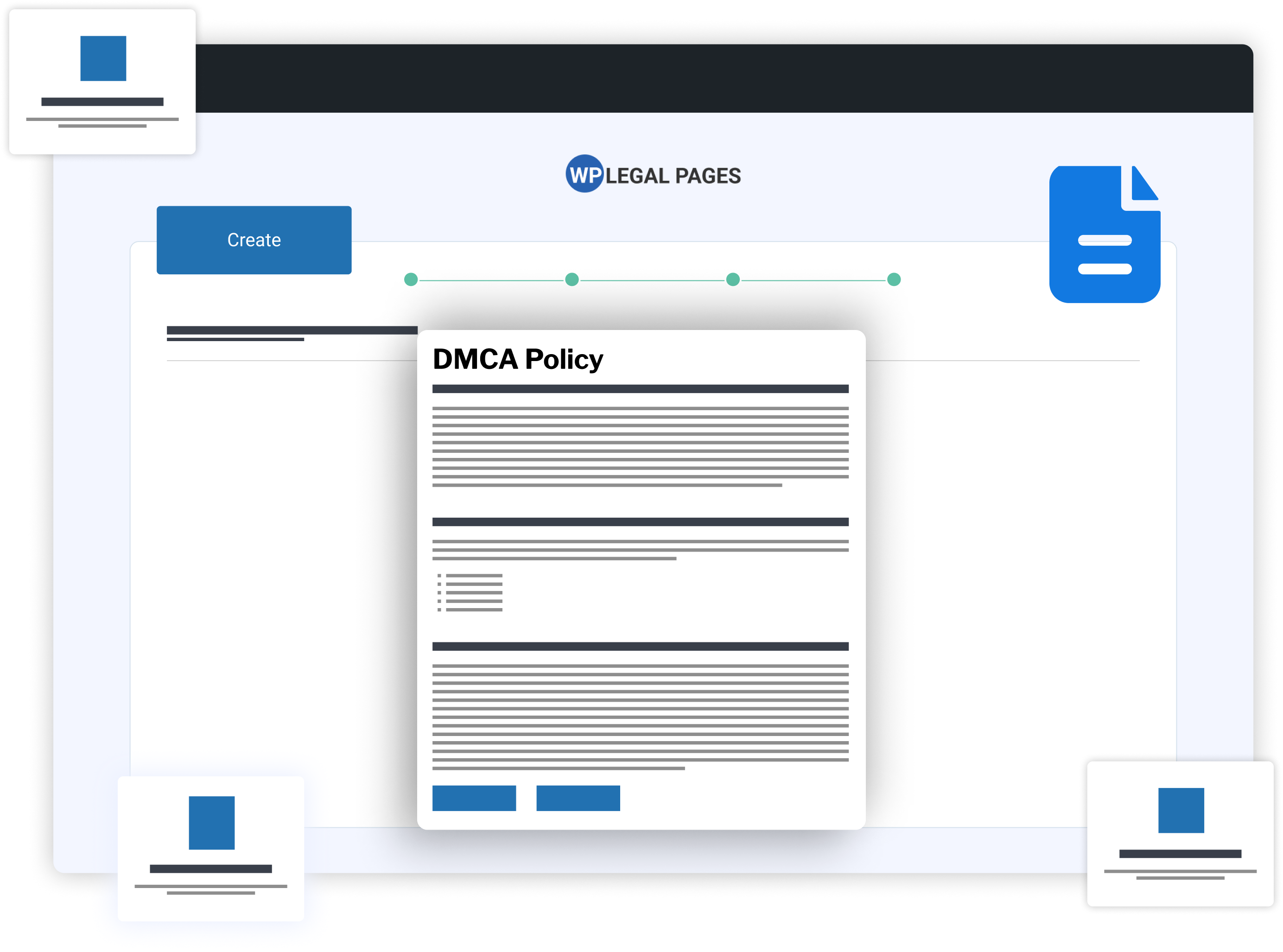Easily generate a compliant DMCA policy to safeguard your content.


Safeguard your website from copyright infringement claims with a comprehensive DMCA Policy.
Shield your site from potential legal issues by adhering to DMCA guidelines.
Provide a clear process for reporting and addressing copyright violations.
Assert your rights over original content, discouraging unauthorized use.
Ensure your website complies with the Digital Millennium Copyright Act (DMCA).
Our user-friendly generator simplifies the DMCA policy creation process.
Answer a few quick questions about your data collection practices.
Review your draft policy and personalize it to match your website's style.
Add your new privacy policy to your website with a single click!
Our user-friendly generator simplifies the DMCA policy creation process.

Discover the advantages of using WP Legal Pages to create and manage your DMCA Policy.
Adapt templates to match your site's needs and branding.
Ensure all aspects of DMCA compliance are covered.
Stay current with evolving legal standards and requirements.
Simple to use, with no technical expertise required.
Quickly generate and implement your DMCA policy, allowing you to focus on content.
Don’t leave your website vulnerable. Generate your DMCA policy now.
A DMCA (Digital Millennium Copyright Act) Policy helps website owners protect their content from unauthorized use and copyright infringement. It also provides a clear process for handling takedown requests from copyright holders.
Any website that publishes content—such as blogs, eCommerce sites, forums, or media-sharing platforms—should have a DMCA policy to address potential copyright disputes and protect itself from legal issues.
The WP Legal Pages plugin generates a DMCA policy in minutes. Just enter your business details, select relevant options, and the tool will create a ready-to-use, legally compliant DMCA policy for your website.
Yes, a properly implemented DMCA policy shows that your website complies with copyright laws. It allows you to respond to copyright claims properly and reduces the risk of legal penalties.
Absolutely! The generator provides a structured DMCA policy that you can edit and personalize to fit your website’s needs, ensuring it aligns with your specific legal requirements.
Yes, a DMCA policy is essential for websites that allow users to post content, such as forums, blogs with guest posts, or social media platforms. It helps you define your stance on copyright issues and clarify how takedown requests will be handled.
While the DMCA is a U.S. law, many websites worldwide follow its principles. WP Legal Pages helps create a policy that aligns with DMCA guidelines and can be adapted for different regions.
⏰Limited-Time Offer – Flat 15% Off. Use code: HAPPY15